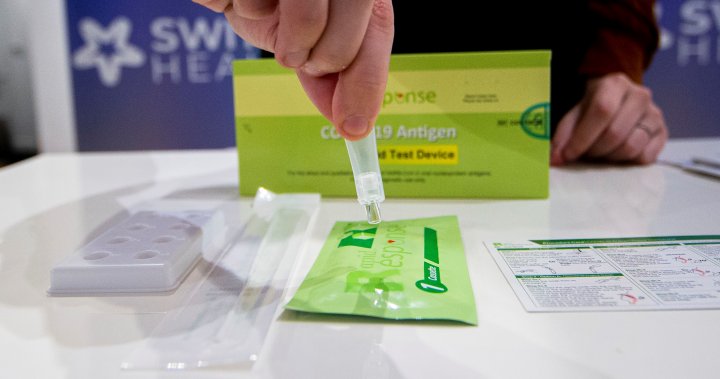
COVID rapid tests: What to know about expiry dates, new variants as fall approaches
Global News
With the circulation of new COVID-19 variants and the impending fall flu season, attention is once again turning to rapid antigen tests.
With the impending fall flu season and the continued circulation of new COVID-19 variants across the country, attention is once again turning to rapid antigen tests.
However, this flu season is different from the last, as the federal government stopped its shipments of rapid tests to the provinces and territories, meaning Canadians may have to look a little harder to find them, or even pay out of pocket, experts say.
Given the dwindling supply, increasing numbers of expired tests and the emergence of new COVID-19 variants in the country, the question arises: Are rapid tests still effective?
“I still see a value in the tests, because SARS-CoV-2, the virus that causes COVID sheds for a longer time than we tend to see with some the other respiratory infections,” explained Dr. Gerald Evans, infectious disease specialist at Queen’s University in Kingston, Ont.
“It would be able to inform you of the likelihood you might have to be off work for a little bit longer than you were expecting.”
In March 2023, the federal government ended new shipments of rapid antigen tests to provinces and territories. Health Canada said the decision to end shipments was made in collaboration with provinces and territories, as the regions had enough supply.
At the time, Ottawa said since the pandemic started it had ordered more than 811 million rapid tests with a price tag of about $5 billion. About 680 million of those went to provinces and territories.
Health Canada said that in March there were 90 million rapid tests in the federal inventory, but 6.5 million of those will expire this year. The rest expire within two years.





















 Run 3 Space | Play Space Running Game
Run 3 Space | Play Space Running Game Traffic Jam 3D | Online Racing Game
Traffic Jam 3D | Online Racing Game Duck Hunt | Play Old Classic Game
Duck Hunt | Play Old Classic Game











